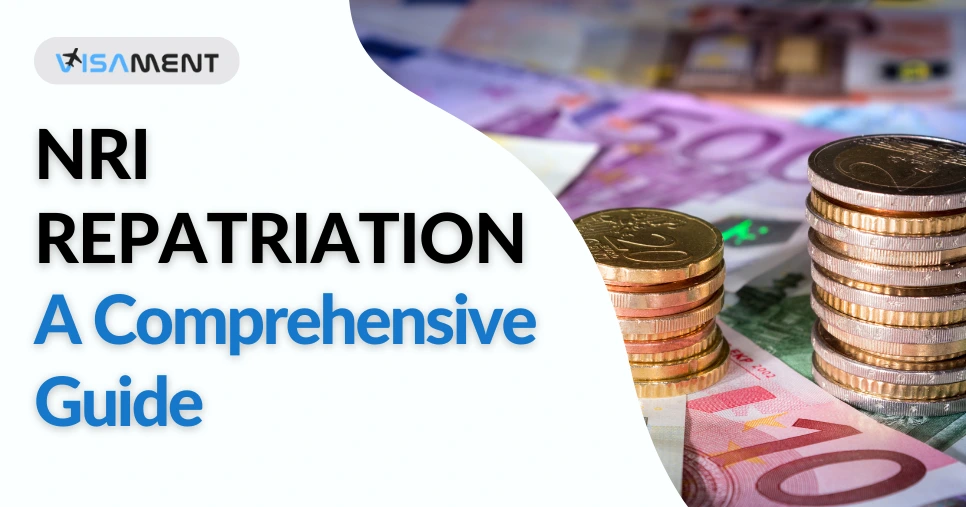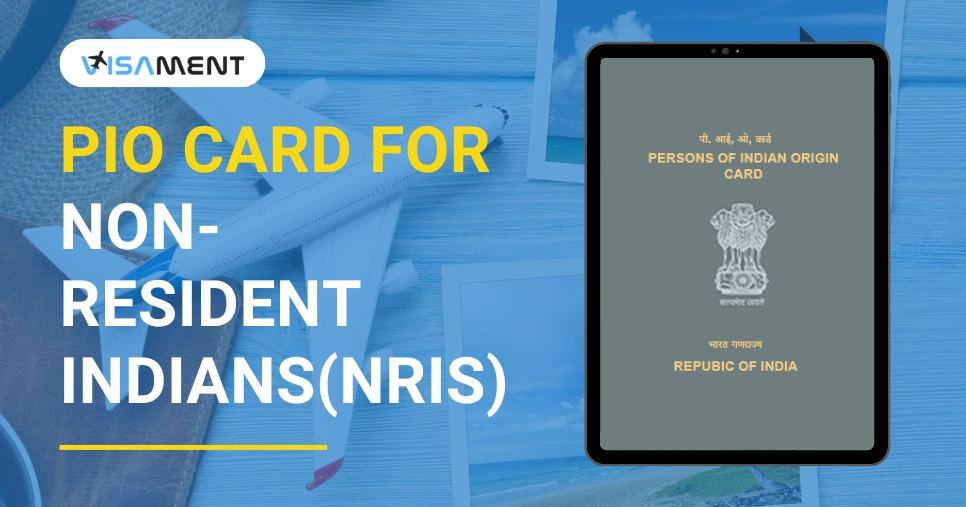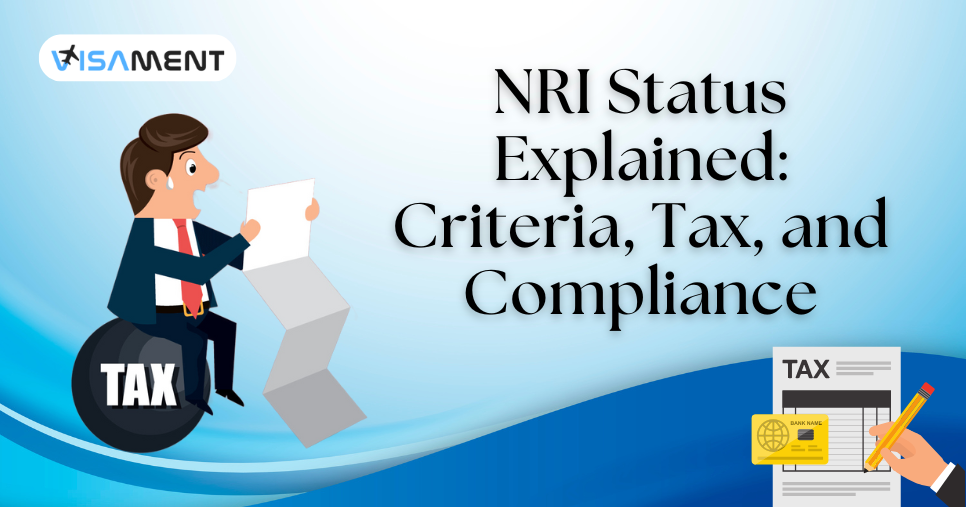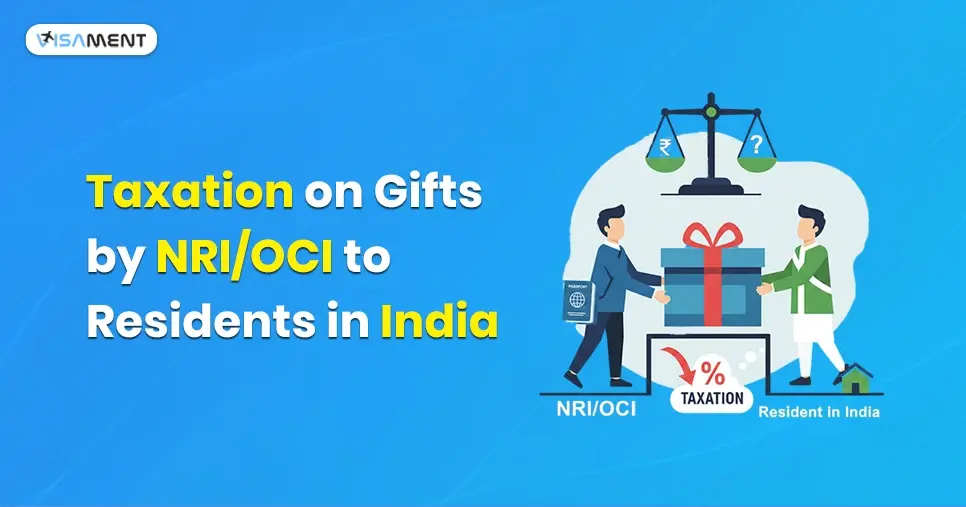NRI Repatriation is a vital aspect of the financial management and planning for non-resident Indians (NRIs) living overseas. Understanding it creates a significant difference. With this, if they want to move their earnings from India to their residing country, they need to follow some guidelines. The guidelines are set by the Foreign Exchange Management Act (FEMA). Repatriation is also a part of this. Want to know more about this process? Here in this guide, we delve into several aspects of the NRI repatriation rules, guided by RBI guidelines and FEMA rules. So, let's begin with knowing the meaning of NRI repatriation.
What Is NRI Repatriation?
In simple words, NRI repatriation refers to the funds transferred from a foreign bank account to an Indian bank account of an NRI. The following process can include both the principal amount and interest earned, depending on the account type. Considering this, the RBI has stated specific conditions and ceilings for the process. It is specifically for the Non-resident Ordinary accounts (NRO accounts).
For example, NRIs have permission to repatriate USD 1 million per financial year from their NRO account. However, the limit of repatriation encompasses the principal and interest amount after the applicable tax payment. Also, for FCNR (Foreign Currency Non-Resident) and NRE (Non-resident external) accounts, the rules are more lenient. For them, there is no limit to funds repatriation involving both principal and interest amounts.
It is all about the NRI repatriation account. With this moving ahead, let's know the different types of NRI bank accounts.
Different Types of NRI Bank Accounts for Repatriation
For effective management of funds, knowing the different types of NRI bank accounts is vital. In addition, it also helps in the repatriation. With this, let's know about them in more detail.
NRO (Non-Resident Ordinary) Account
This account type is for NRIs who have earnings in India. It includes dividends, pensions, or rental incomes. The repatriation of funds from the NRO account is done as per RBI guidelines. As per the current NRO account repatriation rules, the permitted repatriation limit is up to USD 1 million per financial year after clearing all applicable taxes. It is well-known to everyone that interest earned in India on an NRO account is taxable here. This makes understanding the tax implications vital for the account holders.
NRE (Non-Resident External) Account
The NRE account is a perfect option for NRIs seeking to park their foreign incomes in India, maintaining earnings in Indian Rupees. The effective feature of it is the flexibility it offers to NRIs. It allows them the free transfer of funds, involving both principal and interest amounts, without caps. In addition, the interest earned in these accounts is exempt from all Indian taxes. It makes the NRE accounts an attractive option for investment and savings for NRIs.
FCNR (Foreign Currency Non-Resident) Account
The FCNR accounts are for those NRIs who want to keep their savings in foreign currency. These accounts help them to safeguard against the risk of the exchange rate. It allows them to deposit in foreign currencies like GBP, USD, EUR, and more. In addition, the FCNR account stands for its repatriation skills of both principal and interest amounts. It also includes tax implications and ceiling limits on the earned interest.
These are the different NRI saving accounts available for NRIs in India that offer repatriation of funds in their resident nation. Moving ahead, let's know the documents required for the repatriation process for NRIs.
Expert NRI application services to manage your global financial, legal, and personal needs with ease and efficiency through Visament.
Contact US
Documents Required for NRI Repatriation
For a smooth repatriation process from India, NRIs are required to provide specific documents. The RBI sets these compliances under the FEMA guidelines. Moving ahead, let's know about the documents for repatriation.
Documents Requirement for NRO Account
These are the following documents required for NRO account holders for repatriate money:
- Photocopy of a valid visa, passport, or residence permit.
- A request letter for repatriation or Application for Remittance Abroad (ARA) form.
- Bank statements as evidence for the existence of an NRO account.
- Form 15CB, from a Chartered Accountant, shows all the due taxes paid off.
- Form 15CA, a self-declaration letter stating the funds' remittance from India.
Documents Requirement for NRE/ FCNR Account
These are the following documents required for NRE/ FCNR account holders for repatriate money:
- Photocopy of the passport of NRI showing their identity and address.
- Bank statements as evidence for the existence of an NRE/ FCNR account.
- A declaration form mentioning that the repatriated funds are eligible for transfer. In addition, they comply with the FEMA guidelines.
These are document requirements that you need to fulfill for the repatriation of funds. It is advisable before applying for the process to go through the FEMA and RBI guidelines. It makes the transfer of funds easy. Considering this, let's know the FEMA regulations for NRI repatriation.
FEMA Regulations for NRI Repatriation
FEMA, also known as the Foreign Exchange Management Act, has created a legal framework for fund repatriation for NRIs from India. As per it, NRIs have the permission to repatriate up to USD 1 million per financial year as per the Liberalised Remittance Scheme. It includes their incomes from dividends, pension, and rents from India after tax compliance.
In addition, for FCNR and NRE account funds, the FEMA guidelines allow for the complete repatriation of principal and interest amounts. It does not include any upper limit. Also, the following amount is not taxable in India. Moreover, FEMA states for the repatriation process, NRIs need to have an account with an authorized Indian dealer bank. Apart from this, they should comply with papers such as Forms 15CA and 15CB tax clearance forms.
These are the regulations stated by FEMA for NRIs for repatriation of funds. Knowing about them helps in smoothing the whole process of fund transfer.
Conclusion
Navigating the NRI repatriation rules includes knowing the different account types along with RBI and FEMA guidelines. In addition, certifying the tax obligation rules. In this, staying informed or consulting an expert assists in easing the whole process. Also, it helps you to effectively manage your repatriation needs and increase the perks of your financial assets in India. With this, if you need any help with NRI services in India or abroad, contact Visament. The experts here better understand all these things. They can simplify the whole process for you and assist you in your hassle-free travel abroad. So do connect with us now and get the best assistance for sure.
Frequently Asked Questions
The general criteria of repatriation include verifying an applicant is eligible to go back to their home country. For this, it often needs documents like citizenship proof or a passport. In addition, in some cases it does require a legitimate reason for leaving the nation, certifying the return is safe and voluntary. Also, it complies with any vital legal process in both the home and host country.
As per banking repatriation means the process of fund transferring from an Indian bank account to a foreign bank account, the conversion of funds to a foreign currency.
Generally the repatriation cost ranges between a few thousand dollars to several thousand euros. The price can vary significantly depending on factors like transport method, distance traveled, and involvement of a person or a body. Also with the repatriation cost, flights are often comparable to the daily fare of a commercial round-trip.
The NRIs can repatriate up to USD 1 million per financial year from their NRO accounts in India.
To repatriate money from an NRO account you need to submit the following documents- a request letter to your bank Form 15CB, 15CA, and A2, an ID card that can be your valid visa or passport, and document proof showing the payment of applicable taxes.
Repatriation of foreign exchange is the process of funds transfer from an Indian bank account to a foreign account by converting the Indian rupees to foreign currency. The Foreign Exchange Management Act (FEMA) governed this process.










_1742386512.webp)
